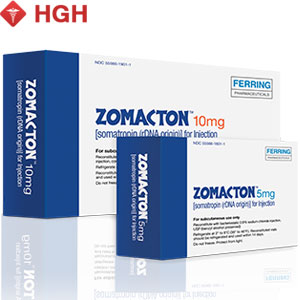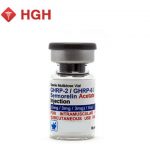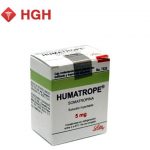
Testosterone is a hormone with far-reaching effects in the body. While many people are familiar with its ability to help build muscle and support general health, not everyone understands testosterone's complex relationship with the human immune system. Testosterone therapy and immune system have an intricate relationship, and below, we'll examine how they interact.
How Does High Testosterone Affect the Immune System?
Testosterone is often correlated with strength and power, so you might think that the testosterone therapy immune system relationship is one in which increased testosterone supports the immune system. However, the opposite appears to be true. In a 2014 study of immune response and testosterone, researchers found that men with higher levels of testosterone had a diminished immune response to a flu vaccine. The researchers in this study noted that testosterone seemed to influence a set of genes that control immune response.
Additionally, very high levels of testosterone increase the release of corticosterone, an adrenal hormone that works to suppress immune response. So for those asking "does testosterone affect immune system function?" the answer is yes, although it may not be quite what you expected.
How Does Low Testosterone Affect the Immune System?
Like most hormones in the body, if levels of testosterone become either too high or too low, the ensuing imbalance is likely to cause health issues. Plenty of men are already aware that low testosterone can cause a range of adverse health effects, including low energy, weight gain, and depression. But if you're wondering "does testosterone boost immune system?" you may be surprised to learn that low testosterone levels increase the production of white blood cells, which are instrumental in fighting infection.
This may sound like a good thing, and it is, at least up until a certain point. The ability of lowered testosterone help immune system function is well documented, and it's part of why the treatment for some forms of cancer involves lowering androgens. For instance, prostate cancer, which grows when exposed to androgens, is sometimes treated in part by androgen deprivation therapy. More generally speaking, an increased immune response may be helpful in fighting off colds, the flu, and other illnesses.
However, when testosterone becomes too low, the marked increase in white blood cell production begins to have deleterious effects. If the body continuously overproduces white blood cells, this overbalance can lead to the development of autoimmune diseases. Thus, while the ability of low testosterone increase immune system might sound promising, the possibility of developing an autoimmune disease, as well as the other side effects of low testosterone, indicate that this is something that should be treated expediently. The connection between low testosterone and autoimmune disease development also helps to explain why women are generally at a greater risk for developing autoimmune disorders.
Low Testosterone and Estrogen Levels
The possibility of developing an autoimmune disease isn't the only possible complication from low testosterone. Normally, the body converts some testosterone to estrogen. But in the case of a testosterone deficiency, this conversion may not take place. The result is something not often talked about in men - an estrogen deficiency. If a man's body has too little estrogen, certain cell activities related to immune function are reduced, and inflammatory markers in the body are increased.
Separate estrogen therapy is not typically needed in these cases, as the aromatase enzyme will convert appropriate amounts of testosterone to estrogen once optimal levels of testosterone have been reached. Once appropriate levels of testosterone have been reached, estrogen levels should also return to normal.
How Do You Know if Testosterone Therapy is Right for You?
If you've just discovered the complex relationship between testosterone and the immune system, you may be unsure of whether or not testosterone therapy is right for you. Many men experience symptoms of low testosterone and want to correct their deficiency in order to feel more confident and energized. But you likely aren't looking to disrupt your immune system or otherwise negatively impact your health.
At Wellness MGT, we provide testosterone therapy and other forms of hormone therapy to men and women who find themselves in need of an adjusted hormone balance. Because each person's unique situation is different, our professionals will take a thorough health history, blood tests, and conduct a physical examination before determining what the best course of therapy is.




